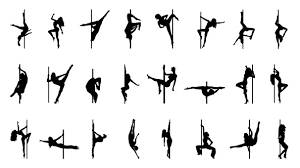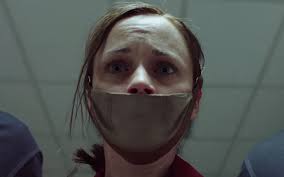
When I was in my late teens my dad said to me, “You were such a happy kid. What happened to you?” I had no idea he even noticed me in that way and this deeply personal query came as a surprise and caused me to pause and consider.
The events that lead him to this question might have arisen from the sudden death of my sister in an accident in 1972. Ten months separated us and we were close. That was a bruising shock that came at the end of rather excellent day.
I remember thinking that this must be how it works – bad things follow good things. It took me decades to shake that feeling but it is problematic blaming all of life’s quirks and complications on one thing when there are probably other factors at play.
I also my remember dad saying once or twice that I was overly sensitive. I felt a bit punch-drunk a lot of the time and my emotions were like a wild beast that I was seldom able to contain. Those words were representative of the kind of reception I was becoming used to. It made me feel nervous about who I was underneath, deep down and within.

I spent a lot of time with Cath and Bob (my maternal grandparents) as a kid and while he was off at work she stayed in bed, often until early afternoon. I learned to move silently as she hated and kind of disturbance, especially noise. Otherwise the most she ever said to me was “move” or “shift” if I was in her way and I tried not to be. I didn’t feel good around her.
That she was depressed is obvious now especially in light of my own mother who was of similar disposition. Their rage was the worst of it and indicative of their deeper suffering. From the lofty position of age, wisdom and experience I can see the clear line of accession but there is more.
That would be my Dad. His two sisters described him as a moody sibling, one prone to silence and isolation. I worked for him for many years and learned he was obsessive and obstructive (though not without redeeming qualities). He was beset of complexities that when combined with mums have made for interesting genetic outcomes.

When people talk about depression they wax lyrical about ‘the darkness’ and ‘hopelessness’ and ‘the void’ and ‘the black hole swallowing you up’. I guess that’s why I never recognised it. Knowing what I know now I would say depression is also emotional pain, anger, confusion, lack of equilibrium, grinding physical and mental exhaustion, apathy, helplessness and abiding unhappiness.
There might also be some obsessiveness and anxiety as well as some of the poetical ‘black hole’ stuff and an uncomfortable sensitivity to outside stimuli especially noise. I just knew it as an unbidden thing that would rise up out of nowhere take a hold of my psyche and shake me about until I didn’t know if I was Arthur or Martha. Sometimes I thought I was losing my mind.

Mum and I were out in Hamilton in a department store called DIC one morning. She handed me some clothes and told me to go and try them on. The attendant took me down to the changing rooms in the basement and I shut the door and suddenly there I was alone in this silent and dimly lit cubicle and it felt good, really good. I wondered what it might be like to stay here forever.
From then on I sought out dark quiet places. It was here away from people and noise that I was able to experience some sort of liberty. As the years passed I finagled ways and means to live like this but always felt the pull of the outside world – I needed to make a living of course and I felt compelled to join in, for the usual reasons of wanting to fit in and belong. It was exhausting and behind my façade I felt like a drowning man. Still do.

I overcompensated like Cath and my Mum who by all appearances were otherwise gregarious and charismatic. I turned it on in order to appear normal and suffered acutely from the effort. Eventually I just gave up on that as I gave up trying to explain myself. I have grown wary of the uninformed and well meaning and out of self-respect have learned to keep myself to myself. This is why I never spoke about the ‘eating thing’ until 2015.
I stopped eating normally when I was fifteen after seeing my naked torso reflected in the bathroom mirror at boarding school. It was a distorted reflection and typical of the way visual messages were scrambled as they travelled between my eye and brain (as I learned later). I felt something had to be done and decided on a course of weight loss even though I was a skinny as a rake.
This was long before anorexia was on the radar. When the word finally entered my lexicon it was as a female complaint and I felt doubly stupid about the mess I had gotten myself into. After twenty-five odd years of struggle I eventually I found a way out though you never fully recover it seems.
Sometime during 2015 I was preparing to interview a big pop star. During the research I learned that he had been treated for anorexia. He clammed up at the very mention. Realising the sensitivity of the line I had just crossed I took a deep breath I told what I had never told anyone, that I suffered from it too.
Relaxing somewhat he explained that his public confession had resulted in a lot of negative commentary and he was now guarded on the subject. He went onto say that for him it became a way of having some control in a life that was otherwise out of control. I had never thought of it like that and I decided that same explanation could work for me but realised eventually that there was more to it than that.
Sometimes things were good, really, really good, then too good then the like lightening ‘good’ feeling would be gone and I’d be a castaway on a barren and bereft shore suitably gasping for breath. What had happened, what had gone wrong, how did I get to here from there?
I was seeking out ritual acts that might make it right and I took it all a wee bit too far is all, like eating only the things I ate when I was feeling good This and lots of other repetitive and compulsive stuff that went around and around and around. This is OCD at work and anorexia is part of that family. So is anxiety.
Anxiety is: A feeling of worry, nervousness, or unease about life.
Anxiety is: Worry, concern, apprehension, consternation, unease, fear, disquietude, perturbation, fretfulness, agitation and angst. It is nervousness, tension, stress, misgiving and foreboding.
Anxiety is: overwhelming, exhausting, depressing and isolating. Acute anxiety immobilises, suffocates and drowns the afflicted. So does depression and OCD.

I have loved Glen Campbell’s music since I first heard his mega-hit Try A Little Kindness ringing out of over Dad’s little transistor radio in 1970. We were out the back by the garage and he was washing the car and I was dicking about with the hose and I stopped and listened, really listened.
You got to try a little kindness/yes show a little kindness/shine your light for everyone to see/and if you try a little kindness/then you’ll overlook the blindness/of the narrow-minded people/walking narrow- minded streets.
It struck a chord and in later years I could have used a little more kindness and broad mindedness but I don’t think anyone really realised what was going on except for mum. She figured it out but and did what she could but dealing with these things is not easy. Not for anyone.
I have to ask myself if I was kind enough to her and others? Sometimes I was but mostly I wasn’t. I had lost sight of myself in my own plight. Key to finding a way out I learned, was to give of yourself, just like the song said. Little things like a smile or a heartfelt compliment, some words of encouragement, an act of generosity. To lift others is to lift ones self. It is a self-serving but effective method that cures nothing but it does make life sparkle a little more.

We were driving along the Hautapu Straight and were stuck behind a meandering tractor. “Gah” said Dad in frustration, “Look at this bugger driving all about the road like a lost soul.” It hit me like a sledgehammer. That was what I was. Lost. I felt all at once shame, confusion and wonderment that the truth should be that obvious. Later I thought of myself as a ghost, a shadow, a passing cloud and wondered why I was and what purpose I served.
Later I concluded that life in its truest sense was meaningless, a by-product of a blind creative process called nature of whose origins we know nothing. All is a mystery yet here we are and like all in nature we are profuse and diverse. In order for species to flourish multiplicity is required and variety in brain function is especially important to a species success.
Sometimes that genetic quest for distinctive minds that might enable the group in unusual ways throws up failures and dead ends. This is how it goes and I came to the conclusion that it was less a case of ‘why me’ and more a case of ‘why not me’.
Dyslexic, depressed, anxious, and obsessed – my wiring is skewiff and I have given up trying to fix it. Anti-Depressants help a little but are not a panacea, unlike the meds for OCD. They worked a treat though I gave them up after five years. I felt it was time to go it alone and an unexpected and difficult with-drawl followed.
Prescription pills can be can be addictive too. One must approach the conclusion with care and consideration. Since I stopped I have never looked back. These meds did their job well.
Otherwise I like a little codeine. It makes me feel warm and alive. Pot is also nice in a similar way. I have also tried micro dosing with LSD after reading about the benefits. I can confirm that it helped though I did not much like the effect. I would prefer to be ‘fine as I am’ but that is not going to happen.
There is a kind of beauty that comes with ageing and its mostly about ‘coming to terms’ with ones self (if you are lucky –some never do). I know my limits and accept that certain proclivities will ever stalk me like a bad night without reprieve.
These days I live in a tiny room. Buried deep with a concrete high rise it has no window and is otherwise deathly silent. I leave it only as necessary and in the silence I have discovered equilibrium and the art of maintaining it.
* I wrote all this down not to glean sympathy or ask for understanding but for someone who is of similar disposition and is just setting out on the path of life and in the reading I hope she might benefit from knowing that she is not alone. Some of us are just made this way though you can be sure that those who aren’t will assure you it is all a matter of attitude. Be careful of these folk for they know not what what they say.












